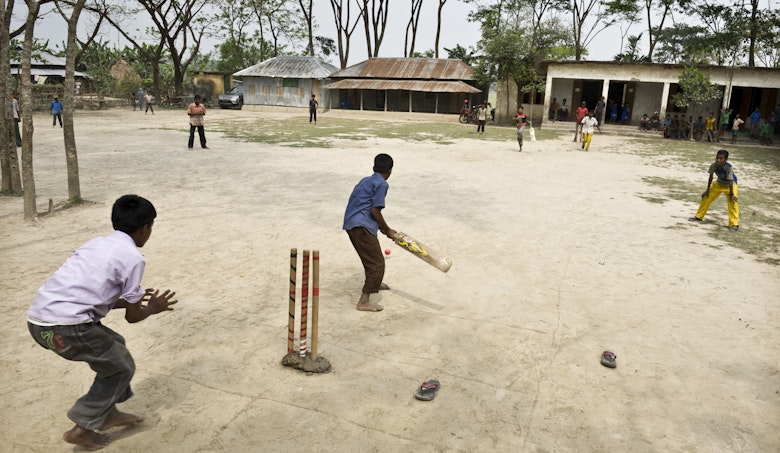Fighting against taboos to improve Sexual and Reproductive Health and Rights in Bangladesh
With the support of the Nuffic Orange Knowledge Programme, Terre des Hommes Netherlands has been implementing a project with the goal of improving Sexual and Reproductive Health and Rights (SRHR), education surrounding these topics, and access to relevant services for vulnerable youth in Bangladesh. This project was launched in 2017 and aimed at offering tens of thousands of young people the possibility to change their future through education and training by mid-2022.
The majority of the pressure group members that constitute the Nuffic project are influential, professional and social activists. To be sure, a pressure group tries to influence public policy in the interest of a particular cause. In this case, the pressure group is advocating for SRHR and education. As part of the project, the pressure group created momentum in schools so that these issues would be discussed in the classroom.
However, since the project was started, we have identified a great need for the pressure group to follow up with schools, students and teachers (via phone calls and physical visits). This is because follow up helps increase the facilitation of SRHR lessons.
For context, sexual and reproductive health is included in the national curriculum for adolescents in Bangladesh. However, due to taboos, shame and discomfort surrounding the topic, the teachers do not discuss the lessons in class: they instead ask the students to read the content at home. Therefore, no agenda is included in the School Management Committee to facilitate SRHR lessons by the teachers. This leads to teenagers being deprived of acquiring necessary knowledge and asking questions about these important issues. In addition, teenage girls are uncomfortable going to school when they are menstruating, as the school lacks facilities for proper hand washing, separate toilets for females, napkin disposal boxes, etc.
At the startup phase of the project, even though lessons on sexual and reproductive health and rights were facilitated, there was no regular follow-up because the members of the pressure group were not aware of how important this was.
Afterwards, it was noted that when the pressure group continues to follow up with schools and teachers, the amount of lessons on SRHR increases from 15% to 60% within a month.
The follow up process took place in February and March of 2022, and included not only the participants mentioned above, but also journalists, NGO/CSO members, and local activists. As a result, two high schools named Cheradangi and Fasiladanga in Dinajpur did set up separate toilets for females and napkin disposal boxes, while also ensuring the availability of new pads and proper hand washing facilities.
All of this helped to improve child participation, gender mainstreaming (which is the process of integrating a gender equality perspective at all stages and levels of policies, programmes and projects), and the inclusion of children with disabilities, as it aims at achieving the minimum standards of alternative care.
The conclusion is clear: following up regularly is necessary for any project to sustain their impact or any result.

